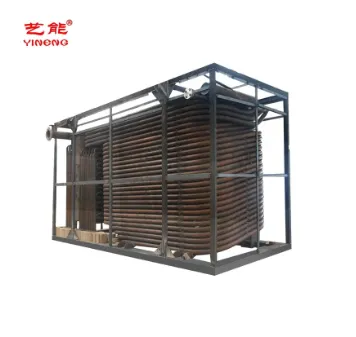Coal Fired Boilers: Reliable Heating Solutions
In industries where large-scale heating is essential, coal fired boilers continue to be a widely used solution. These boilers have proven their reliability and efficiency in delivering high-capacity heating for various industrial applications. This article explores coal fired boilers, including their types, applications, advantages, and considerations for purchase.

What are Coal Fired Boilers?
A coal fired boiler is a heating system that uses coal as its primary fuel source to generate steam or hot water. The coal is burned in the boiler’s combustion chamber, and the heat produced is used to transform water into steam, which can then be used for industrial processes, power generation, or heating.
Coal fired boilers are renowned for their durability and ability to handle high demands, making them suitable for industries such as manufacturing, textiles, and energy production.
Types of Coal Fired Boilers
Coal fired boilers come in several configurations, each tailored to specific applications and operational needs:
Pulverized Coal Boilers
- Coal is ground into a fine powder and blown into the combustion chamber, ensuring efficient and complete combustion.
- Commonly used in power generation.
Chain Grate Boilers
- Feature a moving grate system where coal is burned as it moves along the grate.
- Ideal for industries requiring moderate steam or heating.
Fluidized Bed Boilers
- Use a bed of hot, inert particles to suspend and combust coal.
- Known for efficient fuel use and reduced emissions.
Cyclone Boilers
- Burn crushed coal in a vortex of air, ensuring thorough combustion.
- Suitable for high-capacity heating applications.
Stoker Boilers
- Use mechanical feeders to supply coal to the combustion chamber.
- Common in medium-scale industries.
Applications of Coal Fired Boilers
Thanks to their versatility and capacity, coal fired boilers are utilized in a variety of industries:
-
Power Plants: Generate electricity by producing high-pressure steam for turbines.
-
Textile Mills: Provide the necessary heat for dyeing, drying, and finishing processes.
-
Food Processing: Power steam-driven processes such as sterilization and cooking.
-
Chemical Industries: Supply consistent heat for chemical synthesis and distillation.
-
Paper Mills: Support pulping and drying processes.
Advantages of Coal Fired Boilers
Cost-Effective Fuel
- Coal is often more affordable and readily available compared to other fuels, making it an economical option for long-term use.
High Heating Capacity
- These boilers are designed to handle substantial heating demands, making them suitable for large-scale operations.
Durability
- Built to last, coal fired boilers can operate reliably under heavy workloads for extended periods.
Adaptability
- Can burn various grades of coal, including bituminous, anthracite, and lignite.
Proven Technology
- With decades of use, coal fired boilers have a well-established operational framework and support system.
Coal Fired Boilers for Sale
When exploring coal fired boilers for sale, it’s essential to understand your operational needs to select the right model. Look for features such as:
Efficiency Rating
- Higher efficiency boilers reduce fuel consumption and operational costs.
Capacity
- Determine the heating output required for your industry and choose a boiler that meets those demands.
Emission Control Systems
- Modern boilers come equipped with technologies to minimize emissions, ensuring compliance with environmental standards.
Warranty and Support
- Reputable suppliers often provide robust after-sales support, including warranties and maintenance services.
Customizability
- Some manufacturers offer tailor-made solutions to align with specific industrial requirements.
Coal Fired Boiler Prices
The price of a coal fired boiler depends on several factors, including:
-
Boiler Type: Advanced technologies like fluidized bed boilers are more expensive than simpler stoker models.
-
Capacity: Larger boilers with higher output are costlier.
-
Fuel Efficiency: High-efficiency models typically have a higher upfront cost but lower operational expenses.
-
Brand and Manufacturer: Established brands often charge a premium for reliability and service.
On average, prices range from $10,000 to $100,000 or more, depending on the specifications.
Environmental Considerations
While coal fired boilers are highly effective, their environmental impact is a critical consideration. Advances in emission control technologies, such as flue gas desulfurization and electrostatic precipitators, help reduce harmful pollutants. Opting for boilers equipped with these systems ensures compliance with environmental regulations.
Choosing the Right Supplier
To ensure the best results, work with reputable coal fired boiler manufacturers or suppliers. Consider the following:
-
Experience and Reputation: Choose a company with a strong track record in manufacturing high-quality boilers.
-
Customer Support: Reliable after-sales services and technical assistance are essential for smooth operations.
-
Certifications: Ensure the boiler meets local and international standards for safety and efficiency.
A coal fired boiler is a reliable and efficient solution for industries with high heating demands. Understanding the coal fired boiler types and evaluating their advantages can help you make an informed choice. Whether you’re looking for coal fired boilers for sale or seeking a tailored solution, prioritize efficiency, durability, and compliance with environmental standards.
By selecting the right boiler and working with a trusted supplier, your business can benefit from cost-effective heating, reduced downtime, and consistent performance for years to come.
-
High-Efficiency Horizontal YQW Gas Oil Fired Thermal Oil Boiler-Hebei Yineng Boiler|Energy Efficiency,Advanced CombustionNewsNov.21,2025
-
High-Efficiency Horizontal YQW Gas Oil Fired Thermal Oil Boiler-Hebei Yineng Boiler|Energy Efficiency,Advanced CombustionNewsNov.21,2025
-
Electric Steam Boiler Manufacturers | High-Output & SafeNewsNov.14,2025
-
OEM Steam Boiler Solutions | High-Efficiency, Custom-BuiltNewsNov.13,2025
-
Thermal Oil Boiler | High Efficiency, Low Pressure, OEMNewsNov.12,2025
-
Hebei Yineng Boiler Co., Ltd. Showcases Cutting-Edge Boiler Solutions at Indonesia International Boiler Exhibition 2025NewsNov.11,2025

